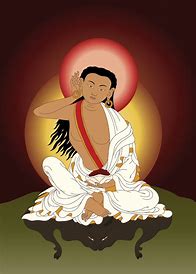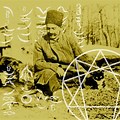Pope sacks leadership of worldwide Catholic charity, names commissioner
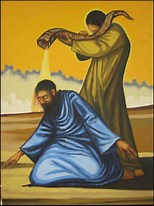









Pope sacks leadership of worldwide Catholic charity, names commissioner
VATICAN CITY (Reuters) - Pope Francis on Tuesday fired the entire leadership of the Roman Catholic Church's worldwide charity arm following accusations of bullying and humiliation of employees, and appointed a commissioner to run it.
The surprise move involved the executives of Caritas Internationalis (CI), a Vatican-based confederation of 162 Catholic relief, development and social services organisations working in more 200 countries.
The sackings of the executive level of CI, which has more than a million staff and volunteers around the world, were announced in a papal decree released by the Vatican press office.
A separate statement from the Vatican's development department, which oversees CI, said a review of the workplace environment this year by external management and psychological experts found malaise and bad management practices at its headquarters.
Current and former staffers told Reuters of cases of verbal abuse, favouritism, and general human resources mismanagement that had led some staff to leave. CI is based in a Vatican-owned building in Rome.
"No evidence emerged of financial mismanagement or sexual impropriety, but other important themes and areas for urgent attention emerged from the panel's work," the statement from the development office said.
"Real deficiencies were noted in management and procedures, seriously prejudicing team spirit and staff morale," it said.
It said that while "financial matters have been well-handled and fundraising goals regularly achieved", management norms and procedures had to be improved.
A CI spokesperson referred all questions to the statement.
Among those affected by the decree was Cardinal Luis Antonio Tagle, who was nominally president of Caritas but was not involved in the day-to-day operations. His main job at the Vatican is head of the Church's missionary arm.
The president's position is traditionally held by a cardinal.
Tagle, a Filipino who is often considered a possible future pope, will step down as president but remain in a new role to help the commissioner keep up relations with national Caritas offices and prepare for election of a new leadership next year.
Two current Caritas insiders and one former staffer, all of whom spoke to Reuters on the condition of anonymity, said the decree was aimed at the management practices by the office of the outgoing secretary general and the board.
The former staffer said employees had left jobs at the headquarters because of a climate of bullying, fear and "ritual humiliation".
Apart from Tagle and one priest, all members of the CI executive were lay people.
(This story has been corrected to say that departures were in Rome, not outside Italy in paragraph 14)
(Reporting by Philip Pullella; Editing by Nick Macfie and Bill Berkrot)
Clinging to ancient faith, India tribes seek religion status
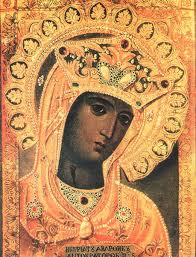









Clinging to ancient faith, India tribes seek religion status
UDUTA, India (AP) — The ritual began with a thunderous roll of leather drums, its clamor echoing through the entire village. Women dressed in colorful saris broke into an Indigenous folk dance, tapping and moving their feet to its galloping rhythm.

At the climax, 12 worshippers — proudly practicing a faith not officially recognized by the government — emerged from a mud house and marched toward a sacred grove believed to be the home of the village goddess. Led by the village chieftain Gasia Maranda, they carried religious totems — among them an earthen pitcher, a bow and arrow, winnowing fan and a sacrificial axe.

- Tribes women dressed up in colorful saris perform indigenous folk dance as they follow worshippers to a sacred grove believed to be the home of the village goddess, in village Guduta, in the eastern Indian state of Odisha, Oct. 21, 2022. India's 110 million indigenous tribespeople scattered across various states and fragmented into hundreds of clans, with different legends, different languages and different words for their gods adhere to Sarna Dharma - a faith not officially recognized by the government. It is a belief system that shares common threads with the world's many ancient nature-worshipping religions. (AP Photo/Altaf Qadri)© Provided by The Associated Press
Maranda and others in Guduta, a remote tribal village in India’s eastern Odisha state that rests in a seemingly endless forest landscape, are “Adivasis," or Indigenous tribespeople, who adhere to Sarna Dharma. It is a belief system that shares common threads with the world’s many ancient nature-worshipping religions.

- Village chieftain Gasia Maranda, left, leads a group of worshippers as they carry religious totems to worship at a sacred grove believed to be the home of the village goddess, in village Guduta, in the eastern Indian state of Odisha, Oct. 21, 2022. Maranda and others in Guduta, a remote tribal village in India's eastern Odisha state that rests in a seemingly endless forest landscape, adhere to Sarna Dharma - a faith not officially recognized by the government. It is a belief system that shares common threads with the world's many ancient nature-worshipping religions. (AP Photo/Altaf Qadri)© Provided by The Associated Press
On that day inside the grove, worshippers displayed their reverence for the natural world, making circles around a Sal plant and three sacred stones, one each for the malevolent spirits they believe need pleased. They knelt as Maranda smeared the stones with vermillion paste, bowed to the sacred plant and laid down fresh leaves covered in a cow dung paste.
“Our Gods are everywhere. We see more in nature than others,” said Maranda, as he led the men back to their homes.
But the government does not legally acknowledge their faith — a fact that is increasingly becoming a rallying point for change for some of the 5 million or so Indigenous tribespeople in the country who follow Sarna Dharma. They say formal recognition would help preserve their culture and history in the wake of the slow erosion of Indigenous tribespeople's rights in India.
Citizens are only allowed to align themselves with one of India's six officially recognized religions — Hinduism, Buddhism, Christianity, Islam, Jainism and Sikhism. While they can select the “Others” category, many nature worshippers have felt compelled by the country's religious affiliation system to associate with one of the six named faiths.

- Village chieftain Gasia Maranda performs rituals as he along with other tribals worship inside an enclosure at a sacred grove believed to be the home of the village goddess, in village Guduta, in the eastern Indian state of Odisha, Oct. 21, 2022. Maranda and others in Guduta, a remote tribal village in India's eastern Odisha state that rests in a seemingly endless forest landscape, adhere to Sarna Dharma - a faith not officially recognized by the government. It is a belief system that shares common threads with the world's many ancient nature-worshipping religions. (AP Photo/Altaf Qadri)© Provided by The Associated Press
Tribal groups have held protests in support of giving Sarna Dharma official religion status in the run-up to the upcoming national census, which has citizens state their religious affiliation.
The protests have gained momentum after the recent election of Droupadi Murmu, the first tribal woman to serve as India's president, raising hopes that her historic win will bring attention to the needs of the country's Indigenous population, which is about 110 million people as per the national census. They are scattered across various states and fragmented into hundreds of clans, with different legends, languages and words for their gods — many, but not all follow Sarna Dharma.
Salkhan Murmu, a former lawmaker and community activist who also adheres to Sarna Dharma, is at the center of the protests pushing for government recognition of his religion. His sit-in demonstrations in several Indian states have drawn crowds of thousands.
At a recent protest in Ranchi, the capital of eastern Jharkhand state, men and women sat cross-legged on a highway blocking traffic as Murmu spoke from a nearby stage. Dressed in a traditional cotton tunic and trousers, Murmu explained how anxieties over losing their religious identity and culture are driving the demand for formal recognition.
“This is a fight for our identity,” Murmu told the crowd, who held their fists in the air and shouted: “Victory to Sarna Dharma.” Thunderous applause washed over the venue.
Murmu is also taking his religion recognition campaign beyond city centers and into remote tribal villages. His message: If Sarna Dharma disappears, one of the country's last links to its early inhabitants goes with it. It is a convincing argument evidenced by the increasing number of tribal members rallying behind Murmu, who are helping fuel the slow morphing of the campaign into a social movement.

- Village chieftain Gasia Maranda leaves a poorly lit mud house along with other worshippers carrying religious totems to worship at a sacred grove believed to be the home of the village goddess, in village Guduta, in the eastern Indian state of Odisha, Oct. 21, 2022. Maranda and others in Guduta, a remote tribal village in India's eastern Odisha state that rests in a seemingly endless forest landscape, adhere to Sarna Dharma - a faith not officially recognized by the government. It is a belief system that shares common threads with the world's many ancient nature-worshipping religions. (AP Photo/Altaf Qadri)© Provided by The Associated Press
“If our religion will not get recognized by the government, I think we will wither away,” said Murmu, as a group of villagers huddled around him in Odisha's Angarpada village. “The moment we get into any other religion by force, by pressure or by gratification we will lose our entire history, our way of life."

- Tribespeople perform an indigenous folk dance in village Guduta, in the eastern Indian state of Odisha, Oct. 20, 2022. India's 110 million indigenous tribespeople scattered across various states and fragmented into hundreds of clans, with different legends, different languages and different words for their gods adhere to Sarna Dharma - a faith not officially recognized by the government. It is a belief system that shares common threads with the world's many ancient nature-worshipping religions. (AP Photo/Altaf Qadri)© Provided by The Associated Press
Murmu's efforts are just the latest push for official recognition.
In 2011, a government agency for Indigenous tribespeople asked the federal government to include Sarna Dharma as a separate religion code in that year’s census. In 2020, the Jharkhand state, where tribespeople make up nearly 27% of the population, passed a resolution with a similar objective.

- A tribe woman washes the feet of worshippers upon their arrival from a sacred grove believed to be the home of the village goddess, in village Guduta, in the eastern Indian state of Odisha, Oct. 21, 2022. India's 110 million indigenous tribespeople scattered across various states and fragmented into hundreds of clans, with different legends, different languages and different words for their gods adhere to Sarna Dharma - a faith not officially recognized by the government. It is a belief system that shares common threads with the world's many ancient nature-worshipping religions. (AP Photo/Altaf Qadri)© Provided by The Associated Press
The federal government did not respond to either request.
One argument for granting Sarna Dharma official recognition is the sheer number of nature worshippers in India, said Karma Oraon, an anthropologist who taught at Ranchi University and has studied the lives of Indigenous tribes for decades.
The 2011 national census shows Sarna Dharma adherents in India outnumber Jains, who are officially the country's sixth largest faith group. Hindus are No. 1, making up nearly 80% of the 1.4 billion people in India.
More than half — a number close to 4.9 million — of those who selected the “Others” religion option in the 2011 national census further identified as Sarna Dharma adherents. Comparably, India's Jain population is slightly more than 4.5 million people.
“Our population is more than the recorded believers who follow Jainism. Why can’t then our faith be recognized as a separate religion?” Oraon said.
Decades ago, there were more options for Indigenous tribespeople.

- A tribes woman washes the feet of Salkhan Murmu, a former lawmaker and community activist, a traditional custom among tribespeople to welcome guests as he arrives during an awareness campaign to demand recognition of Sarna Dharma as a religion in village Guduta, in the eastern Indian state of Odisha, Oct. 21, 2022. Murmu, who also adheres to Sarna Dharma, is at the center of the protests pushing for government recognition of his religion. His sit-in demonstrations in several Indian states have drawn crowds of thousands. (AP Photo/Altaf Qadri)© Provided by The Associated Press
The census, started in 1871 under British rule, once allowed for the selection of “Animists,” “Aboriginal,” and “Tribes.” The categories were removed in 1951 when the first census in independent India was conducted.
Some hope giving Sarna Dharma official status could stem the various existential threats to the faith.
The natural environment is integrally linked to worshippers’ identity, but fast-disappearing ancient forests and encroachment by mining companies has led many to leave tribal villages, creating a generational disconnect among followers, Oraon said. Plus, many from younger generations are abandoning their centuries-old religious customs for urban life.

- Salkhan Murmu, a former lawmaker and community activist, centre in white, speaks to tribespeople during an awareness campaign to demand recognition of Sarna Dharma as a religion in village Guduta, in the eastern Indian state of Odisha, Oct. 21, 2022. Murmu, who also adheres to Sarna Dharma, is at the center of the protests pushing for government recognition of his religion. His sit-in demonstrations in several Indian states have drawn crowds of thousands. (AP Photo/Altaf Qadri)© Provided by The Associated Press
“We are going through an identity crisis,” said Oraon.
His concerns have heightened after Hindu nationalist groups, including Prime Minister Narendra Modi’s ruling party, have sought to bring nature worshippers into the Hindu fold. They are motivated by potential electoral gains but also want to bolster their agenda of transforming a secular India into a distinctly Hindu state.
- A tribesman prays in front of the statue of Birsa Munda, a 19th-century charismatic Indigenous leader who led his forest-bound community in revolt against British colonialists when they ruled India, in village Guduta, in the eastern Indian state of Odisha, Oct. 21, 2022. Munda's legend grew after his death and bronze statues of him appeared in almost every tribal village in the state. Soon, a man who worshipped nature was worshipped by his own people. Munda's religion barely survived the onslaught of conversions in his ancestral Ulihatu village. Half of his descendants have converted to Christianity. (AP Photo/Altaf Qadri)© Provided by The Associated Press
These efforts stem from a long-held belief that India’s Indigenous tribespeople are originally Hindus, but adherents of Sarna Dharma say their faith is different from monotheistic and polytheistic ones.
Sarna Dharma has no temples and scriptures. Its adherents don’t believe in heaven or hell and don’t have images of gods and goddesses. Unlike Hinduism, there is no caste system nor rebirth belief.
“Tribespeople might share some cultural ties with Hindus, but we have not assimilated into their religion,” said Oraon.

- Sukhram Munda, left, great-grandson of Birsa Munda, a 19th-century charismatic Indigenous leader who led his forest-bound community in revolt against British colonialists when they ruled India, speaks to a villager near the birthplace of his great grandfather in Ulihatu village, in the eastern Indian state of Jharkhand, Oct. 19, 2022. Munda's religion barely survived the onslaught of conversions in his ancestral Ulihatu village. Half of his descendants have converted to Christianity. (AP Photo/Altaf Qadri)© Provided by The Associated Press
The gradual embrace of Hindu and Christian values by some Indigenous tribal groups has exacerbated his concerns.
- A girl carrying a bucket walks past a church at the entrance to Ulihatu village, the birthplace of Birsa Munda, a 19th-century charismatic Indigenous leader who led his forest-bound community in revolt against British colonialists when they ruled India, in the eastern Indian state of Jharkhand, Oct. 19, 2022. Munda's religion barely survived the onslaught of conversions in his ancestral Ulihatu village. Half of his descendants have converted to Christianity. (AP Photo/Altaf Qadri)© Provided by The Associated Press
In the late 19th century, many tribespeople in Jharkhand, Odisha and other states renounced nature worship — some voluntarily and others coaxed by money, food and free education — and converted to Christianity. Hindu and Muslim groups also encouraged conversion, further chipping away at nature worshipper numbers.
In some cases, the conversions were resisted, said Bandhan Tigga, a religious leader of Sarna Dharma. When Hindu groups showed up, some tribespeople sacrificed cows, a holy animal for Hindus. They also slaughtered pigs, considered unclean in Islam, when Muslim missionaries arrived.
“In each case, the women smeared either pig or cow fat on their foreheads so that no Hindu or Muslim man could marry them,” said Tigga, wearing a white and red striped cotton towel around his neck, a design that also makes up for the Sarna Dharma flag fluttering atop his house in Murma, a village in Jharkhand.

- Bandhan Tigga, a religious leader of Sarna Dharma, performs a ritual in front of the stump of a sacred Sal tree at a spiritual center in Murma village in the eastern Indian state of Jharkhand, Oct. 19, 2022. India's 110 million indigenous tribespeople scattered across various states and fragmented into hundreds of clans, with different legends, different languages and different words for their gods adhere to Sarna Dharma - a faith not officially recognized by the government. It is a belief system that shares common threads with the world's many ancient nature-worshipping religions. (AP Photo/Altaf Qadri)© Provided by The Associated Press
Most Christian missionaries are met with resistance these days, but conversions can still happen, said Tigga, who travels to remote parts of eastern India to persuade converts to return to their ancient faith.
For Sukhram Munda, a man in his late 80s, much is already gone.
He is the great-grandson of Birsa Munda, a 19th-century charismatic Indigenous leader who led his forest-bound community in revolt against British colonialists. Munda’s legend grew after his death and bronze statues of him appeared in almost every tribal village in the state. Soon, a man who worshipped nature was worshipped by his own people.
- Family members stand next to the body of an elderly tribes woman after she passed away in Donkasai village in the eastern Indian state of Jharkhand, Oct. 20, 2022. India's 110 million indigenous tribe
people scattered across various states and fragmented into hundreds of clans, with different legends, different languages and different words for their gods adhere to Sarna Dharma - a faith not officially recognized by the government. It is a belief system that shares common threads with the world's many ancient nature-worshipping religions. (AP Photo/Altaf Qadri)© Provided by The Associated Press
But Munda’s religion barely survived the onslaught of conversions in his ancestral Ulihatu village in Jharkhand. Half of his descendants converted to Christianity, Sukhram said. Now, the first thing visitors to Ulihatu see is a church, a large white building that stands out against the green of the surrounding forests.
“This used to be the village where we worshipped nature,” said Sukhram. “Now half of the people don’t even remember the religion their ancestors followed.”

- An elderly tribal vendor tries to fix a bulb at a weekly market locally known as Haat bazaar in Bisoi village in the eastern Indian state of Odisha, Oct. 20, 2022. India's 110 million indigenous tribespeople scattered across various states and fragmented into hundreds of clans, with different legends, different languages and different words for their gods adhere to Sarna Dharma - a faith not officially recognized by the government. It is a belief system that shares common threads with the world's many ancient nature-worshipping religions. (AP Photo/Altaf Qadri)© Provided by The Associated Press.
Associated Press religion coverage receives support through the AP’s collaboration with The Conversation US, with funding from Lilly Endowment Inc. The AP is solely responsible for this content.
Story by By SHEIKH SAALIQ, Associated Press
Turkish ‘cult leader’ Oktar sentenced to 8,658 years in prison








Turkish ‘cult leader’ Oktar sentenced to 8,658 years in prison
An Istanbul court has sentenced a televangelist who surrounded himself with scantily clad women he called “kittens” to 8,658 years in prison in a retrial, Turkish local media reported.
![Turkish police officers escort televangelist Adnan Oktar (C) on July 11, 2018, in Istanbul, as he is arrested on fraud charges [File: Dogan News Agency/AFP] Turkish police officers escort televangelist Adnan Oktar (C) on July 11, 2018, in Istanbul, as he is arrested on fraud charges [File: Dogan News Agency/AFP]](https://img-s-msn-com.akamaized.net/tenant/amp/entityid/AA14dwwx.img?w=768&h=511&m=6&x=0&y=26&s=847&d=256)
Adnan Oktar, who has been described as a “cult leader”, led television programmes surrounded by women as he preached creationism and conservative values.
He also published books in multiple languages around the world, under the pen name Harun Yahya.
The 66-year-old and hundreds of his followers were arrested in 2018 after a police raid on his villa revealed he ran a criminal ring under the disguise of a heterodox Islamic cult which carried out international antievolution campaigns through various publishing houses and media outlets.
His online A9 TV channel was also shut down.
In January 2021, Oktar was convicted of 10 separate charges, including leading a criminal gang, engaging in political and military espionage, sexual abuse of minors, rape, blackmail and causing torment.
The charges also included aiding the network led by US-based Muslim scholar Fethullah Gulen, whom Turkey accuses of masterminding a failed coup attempt in 2016.
Oktar was sentenced at the time to 1,075 years, but an upper court overturned that ruling.
During the retrial, Istanbul’s High Criminal Court on Wednesday sentenced Oktar to 8,658 years in prison on several charges, including sexual abuse and depriving someone of their liberty, the Anadolu news agency reported.
The court also sentenced 10 other suspects to 8,658 years in prison each, the agency said.
According to the Turkish Daily Sabah, the sentences did not exceed a previous record sentence issued by the court – which was 9,803 years and six months – but are still one of the longest in the country and in the world.
Reference: Al jazeera:
Gay couple who were turned away by 31 churches finally have dream wedding
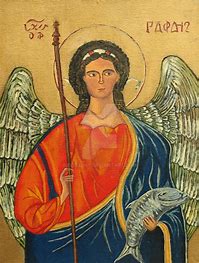









Gay couple who were turned away by 31 churches finally have dream wedding
gay couple who wanted a church wedding said they were turned down by 31 locations – but finally they’ve been able to tie in the knot in a religious setting.

Shane Yerrell, 39, and David Sparrey, 30, got hitched in Wanstead, East London, last month.
After a family health issue, they knew now was the time to marry.
They had always wanted a church wedding but claim they were rejected 31 times after calling venues.
Thankfully, Wanstead United Reformed Church said yes on the 32nd try – and the pair were able to marry in front of family and friends on October 21.
Shane said: ‘Honestly, I’d all but given up. But when I spoke to [Reverend] Tessa I was literally shouting with joy and jumping round the room. David didn’t believe me.
‘When we met Tessa she said, “I can see you love each other, love is love”. It was the most amazing feeling.
‘She said, “Everyone deserves to marry the person they love” – and she’s right.
‘The day was so special. That church was a light at the end of a tunnel. They are so brave and we will always be so grateful to them.

‘It really wasn’t easy but it was more than worth it all. We thought it would never happen. It was like they were all reading a script – “We’d love to, but no”.’
The couple, from Waltham Abbey, Essex, met through a mutual friend in 2014 and were together by 2016.
Electrical engineer David then proposed on a beach on a family holiday in Crete, and the couple brought the wedding forward two years.
Both men are Christians who attend church every six weeks, so they were set on the traditions of a church wedding.
Shane, who is deputy mayor for Waltham Abbey and a councillor for Epping Forest, said he then spent up to 15 hours on the phone trying to find a venue.
When the big day finally did arrive, David walked down the aisle first with his mum, Dawn Bond, 56.
Shane was given away by mum Maria Markham, 58, and grandmother Iris Markham, 79.
His daughter Tilly, 15, was the maid of honour.
More than 100 guests piled into the church to witness the happy union, and an extra 40 joined the party at Waltham Abbey Town Hall.

‘We were over the moon when the church agreed to marry us. Everything felt complete. I had hoped Shane’s patience and determination would pay off and it did.
Shane added: ‘It was so moving, overwhelming, I could hardly believe it. It really was the most special moment.
‘We had done it and we hadn’t had to settle for something we wanted less. I’m delighted we’re part of that church’s history, we’ve made friends for life.
‘Gay people just don’t think it is possible, but if you are a same-sex couple and you want to get married in a church just don’t give up.
‘I think a lot of churches are frightened of a backlash – people saying it isn’t what the bible says.
‘But I think they could find a way of interpreting that for themselves and making it possible, after all, love is love no matter whether you’re gay or straight.’
The United Reformed Church UK’s website says they have a continual aim of reforming themselves to be a church for the present day.
Same-sex marriage was legalised in the UK in 2013, but according to the Church of England website, the law prevents its ministers from carrying out same-sex marriages.
It adds that although there are no authorised services for blessing a same-sex civil marriage, your local church can still support you with prayer.
Reference: Metro: Tanyel Mustafa
Articles-Latest
- Koran burning conviction sparks fury as blasphemy law 'returns to UK'
- Robert Francis Prevost - Pope Leo XIV
- Pope Francis' death follows recent health challenges. Here's what we know about how he died.
- Easter April 2025 - international Celebrations
- The Rule of the twelve psalms -Worthy is the Lamb
- Religion in Africa Before Christianity and Islam
- 6 The Origin of Yahweh
- Dumo Di Milano
- What Did the Crow Tribe Believe In: Discover The Beliefs!
- 7 Reasons Historic Christianity Rejects the Book of Enoch
- 8 Breathtaking Mountain Monasteries Around the World
- Ethiopian Bible is oldest and most complete on earth
- Muhammad Muhammad was a prophet and founder of Islam.
- World Day of the Poor – SVP Christmas Campaign 2024
- Pope Francis to open 5 sacred portals on Christmas Eve — for a ritual that’s never been done before
- The 144,000 in Revelation
- Over 73 dead bodies 'used for meditation', 600 crocs in a pond, found in two Thai temples
- Occultism: Western Occult Tradition
- What is a Mudra
- Blood Sacrifices: Ancient Rituals of Life and Death
Articles-Most Read
- Home
- Let There Be Light
- Plants that feel and Speak
- The Singing Forest
- The Singing Forest-2
- Introduction
- Meditation
- Using Essential Oils for Spiritual Connection
- Heaven Scent
- Plants that Feel and Speak-2
- Purification
- Making the Spiritual Connection
- Anointing
- Essential Oils: The unseen Energies
- The Sanctity of Plants
- The Aroma Of Worship-Foreward
- The Aroma Of Worship - Introduction
- Methods Of Use
- Spiritual Blending
- Handling and Storage


